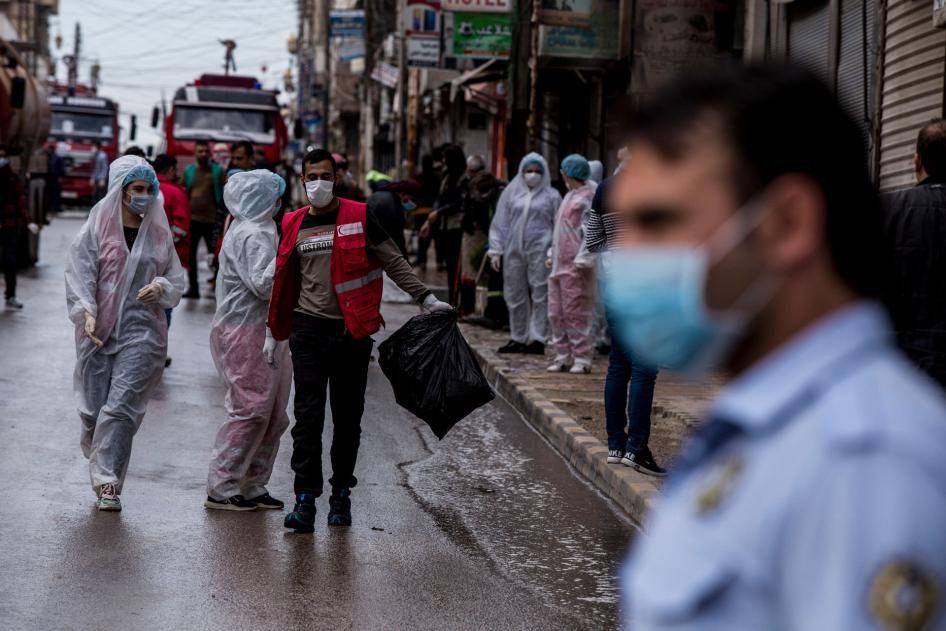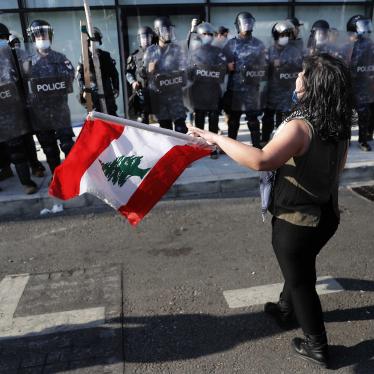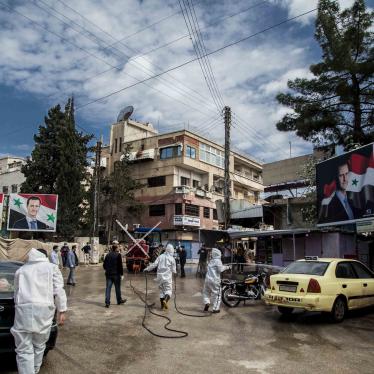To help prevent a catastrophic outbreak of Covid-19 in Syria, the World Health Organization (WHO) should stand firm in urging the United Nations Security Council to ensure medical and other humanitarian aid can be delivered to Syria over an Iraq border crossing.
Earlier this week, Human Rights Watch published new research showing that limits on aid deliveries from Damascus and Iraq are restricting medical supplies and personnel needed to help protect the two million people in northeastern Syria from Covid-19. An uncontrolled outbreak in this conflict-ravaged area, which has already seen at least one coronavirus death, would be disastrous.
The WHO also urged the 15-nation Security Council to reauthorize the al-Yarubiyah crossing between Kurdish-controlled northeastern Syria and Iraq. According to Reuters, the WHO sent the council a private memo last week asking it to reauthorize al-Yarubiyah “as a matter of urgency” due to the Covid-19 risk. Al-Yarubiyah is one of four crossings the council authorized in 2014 to enable cross-border aid delivery into northern and southern Syria. In January 2020, under threat of a Russian veto, the council de-authorized al-Yarubiyah, which remains in the hands of Kurdish authorities, and one other crossing.
But on April 28, the WHO sent council members an updated memo in which the clear call for reauthorizing al-Yarubiyah was inexplicably absent. According to several council diplomats, the new diluted messaging undermines efforts in the council to reauthorize al-Yarubiyah. The WHO offered no response when asked whether it had been pressured to change its recommendation.
Russia has argued that al-Yarubiyah is no longer necessary as areas serviced by it are now under Syrian government control and could be supplied from Damascus. But the original WHO memo, seen by Human Rights Watch, made clear that aid organized from Damascus “will not be sufficient to support an effective response to COVID-19.” This sentiment was echoed on April 29 by the UN humanitarian chief Mark Lowcock. Our own research has shown how aid agencies face significant obstacles transporting materials and personnel from Damascus to areas of northeast Syria outside of government control.
Given the dangers posed by Covid-19, the council should immediately reauthorize al-Yarubiyah. This would allow the WHO to scale-up support to the region, including by resuming supplies and funding to international aid groups based in northeastern Syria.
The WHO should stand by its original principled ask and not succumb to pressure. This is about saving lives, not avoiding criticism.











